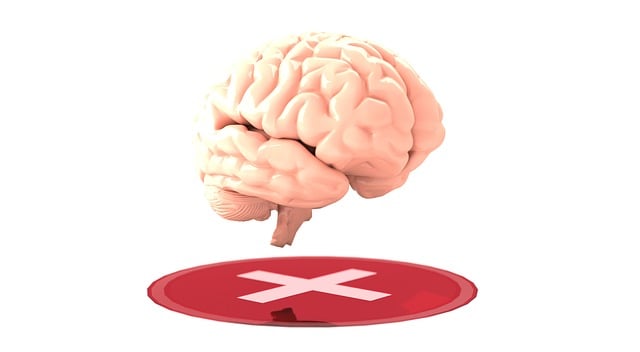Parker First Responders Therapy emphasizes the growing importance of Emotional Intelligence (EI) in healthcare, particularly for first responders. This specialized approach targets trauma survivors and professionals, focusing on mental health awareness and resilience to enhance self-awareness, empathy, and coping skills. Through journaling exercises and strategies, it empowers individuals to manage stress, improve patient connections, and foster healthier work environments. By integrating EI, the therapy promotes culturally competent care, improving patient outcomes and satisfaction, especially in diverse communities, while advocating for better mental health policies.
Emotional intelligence (EQ) is a powerful tool for personal growth and overall well-being. This article explores its significance, offering a comprehensive guide to enhancing your EQ. We delve into the transformative power of Parker First Responders Therapy, a pioneering approach aiding individuals in navigating emotions effectively. Furthermore, it provides practical strategies for daily integration, fostering self-awareness and empathy. Discover how mastering emotional intelligence can revolutionize personal and professional relationships.
- Understanding Emotional Intelligence and Its Impact on Well-being
- The Role of Parker First Responders Therapy in Enhancing EQ
- Strategies for Daily Practice to Develop Self-awareness and Empathy
- Integrating Emotional Intelligence into Personal and Professional Relationships
Understanding Emotional Intelligence and Its Impact on Well-being

Emotional intelligence (EI) is a powerful concept that has gained significant attention in recent years, particularly within the healthcare sector. At its core, EI refers to the ability to recognize, understand, and manage one’s own emotions, as well as empathize with and influence the emotions of others. This isn’t just about being sensitive to feelings; it involves complex cognitive processes that shape our behaviors and interactions. For first responders, such as those in therapy or healthcare roles, EI is a game-changer.
Developing emotional intelligence can lead to improved mental wellness and resilience among professionals. According to Parker First Responders Therapy, integrating EI into practice promotes better stress management, enhances patient connections, and fosters healthier work environments. The impact extends beyond individual well-being; culturally competent healthcare providers equipped with EI skills can improve patient outcomes and satisfaction. This is particularly relevant in diverse communities, where understanding cultural nuances and emotional expressions contributes to more effective treatment and support. Additionally, mental wellness journaling exercises and resilience-building strategies, guided by professionals, can be integral parts of cultivating EI, enabling individuals to navigate challenging situations with enhanced emotional awareness and adaptability.
The Role of Parker First Responders Therapy in Enhancing EQ

Parker First Responders Therapy plays a pivotal role in enhancing Emotional Intelligence (EQ) by focusing on the mental health awareness and resilience of individuals, particularly those who have experienced trauma or are first responders to crises. This form of therapy is designed to address deep-seated emotional wounds that can hinder self-awareness and empathy—key components of EQ. Through tailored interventions and strategies, it fosters self-esteem improvement and promotes healthy coping mechanisms, enabling individuals to better navigate interpersonal relationships and stressful situations.
The therapy incorporates elements from Mental Health Policy Analysis and Advocacy, ensuring a comprehensive approach to addressing emotional challenges. By cultivating an environment where individuals feel safe to express their emotions, Parker First Responders Therapy empowers them to build stronger connections with themselves and others. This process is crucial for developing the self-regulation skills necessary to manage stress, maintain composure under pressure, and exhibit empathy in various settings—all of which contribute to a higher level of emotional intelligence.
Strategies for Daily Practice to Develop Self-awareness and Empathy

Developing self-awareness and empathy is a crucial part of emotional intelligence building, and there are simple strategies you can incorporate into your daily routine to foster these essential skills. One effective approach is to engage in regular self-reflection practices. This can involve taking time each day to journal, focusing on your emotions and thoughts without judgment. By doing so, you begin to understand the triggers that affect your mental health and gain valuable insights into your emotional responses. For instance, reflecting on stressful situations can help you recognize patterns of behavior or thought processes related to anxiety or depression (Parker First Responders Therapy).
Additionally, cultivating empathy requires us to step into another person’s shoes. Active listening is a powerful tool to achieve this. When interacting with others, fully concentrate on their words and non-verbal cues, try to understand their perspective, and acknowledge their feelings. This practice not only strengthens relationships but also enhances your ability to connect and empathize with people from diverse backgrounds, contributing to improved mental health awareness and coping skills development (Depression Prevention).
Integrating Emotional Intelligence into Personal and Professional Relationships

Integrating emotional intelligence into personal and professional relationships is a key aspect of holistic development. It involves recognizing, understanding, and managing one’s own emotions while also empathizing with and responding appropriately to others’ feelings. This skill set fosters deeper connections, enhances communication, and promotes healthier interactions. In the context of Parker First Responders Therapy, emotional intelligence plays a pivotal role in equipping individuals who deal with high-stress situations to cope better and maintain strong relationships both within their teams and with the communities they serve.
By integrating emotional intelligence into personal and professional spheres, individuals can significantly contribute to the broader community’s mental health and well-being. Public Awareness Campaigns Development, Mental Health Policy Analysis and Advocacy, and Stress Management Workshops Organization are all strategies that leverage emotional intelligence to create a culture of care and support. These initiatives not only enhance individual resilience but also strengthen societal fabric by promoting empathy, understanding, and effective communication in various settings.
Emotional intelligence is a powerful tool for enhancing personal and professional relationships. By understanding its impact on well-being, leveraging techniques like Parker First Responders Therapy, practicing daily self-awareness and empathy, and integrating EQ into various aspects of life, individuals can cultivate deeper connections and lead more fulfilling lives. These strategies, backed by research and practical applications, offer a comprehensive approach to developing emotional intelligence.














